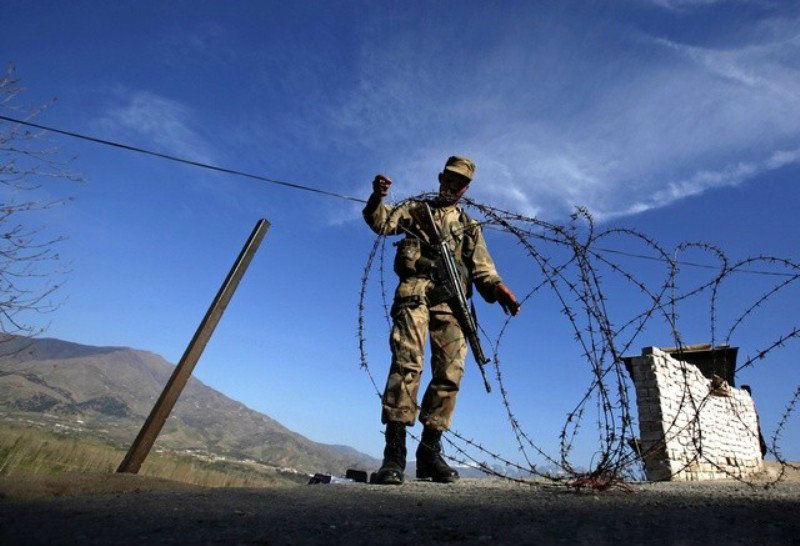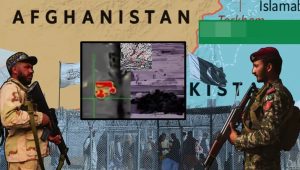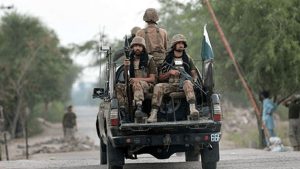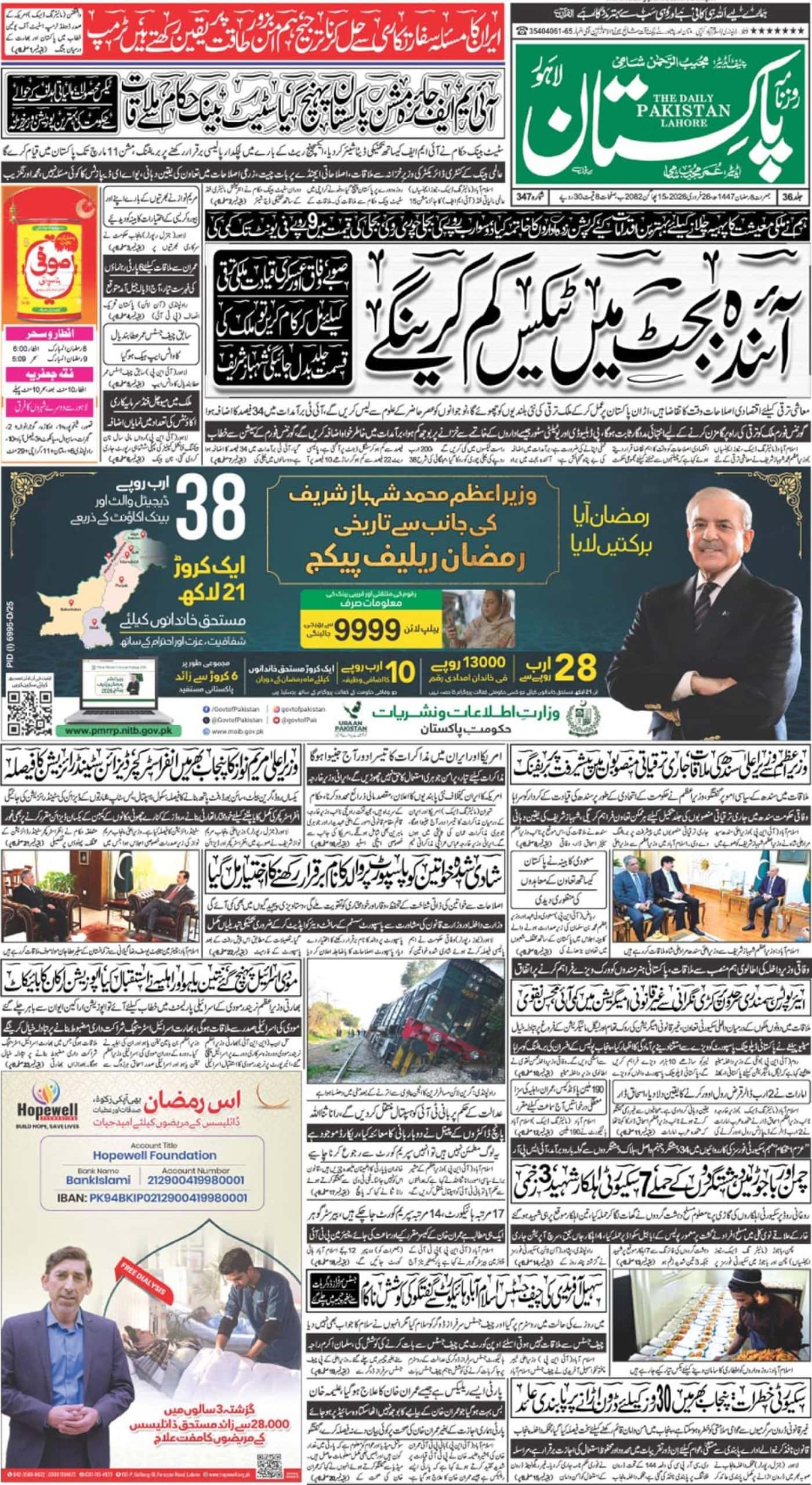LAHORE – Despite an official ceasefire at the border area between Pakistan and Afghanistan being called on Wednesday after an intense few days of cross-border firing, relations between the two Muslim neighbors still remain tense.
Reacting to the “unprovoked” border violations of Afghan forces which killed Pak-Army Major Jawad Ali Changezi, among others, Pakistani forces have taken over several key border posts of Afghanistan.
One Afghan soldier was also killed in the exchange of firing which first broke out on Sunday at the Torkham crossing, about 45 km west of Peshawar, over the construction of a new border post on the Pakistani side.
Pakistan claims it was fencing the border to stop the infiltration of foreign militants from Afghanistan into its territory. However, Afghanistan has opposed the move because it considers parts of its border with Afghanistan as disputed.
The row has led to Pakistan’s closure of the Torkham crossing, while a curfew has been declared in Pakistan’s Landi Kotal town, which lies at the edge of the Khyber Pass, the main entrance into Afghanistan.
Where Pakistan’s strong response to the border violations is being hailed by some in the country, it is being labelled as ‘callous’ by Afghans living in the heart of Kabul and other settled areas in the neighboring country.
The brewing tensions at the porous and disputed 2,200 km-long Durand Line have affected millions of people on both sides of the border, especially in economic terms.
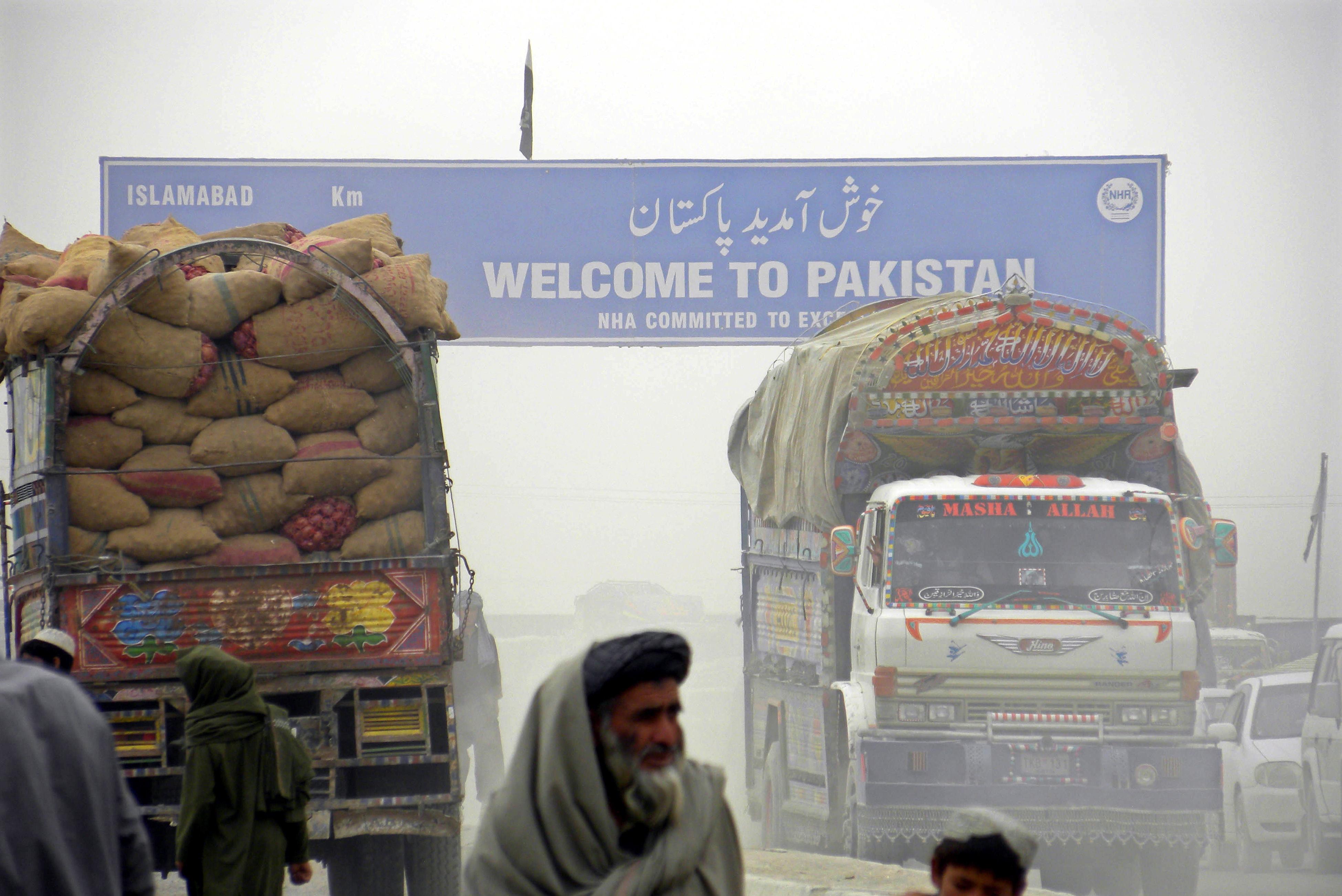
More than one million Pakistanis will lose their occupation in next few weeks if the tense situation prevails, according to a rough estimate.
With Indian influence on the government in Kabul, the relations between the two Muslim countries is not the same as were last year. In 2014-15, Pak-Afghan trade reached $5-8 billion and Afghanistan was one of Pakistan’s major trading partners and export markets.
But since the increase in cross-border hostilities, Afghan authorities appear to have lost interest in pushing forward any trade-related agreements with Pakistan. An alternative route via Iran’s Chabahar port, being developed with Indian and Chinese investment, is already shaping up to allow the land-locked Afghanistan access to South Asia and the Far East without transit through Pakistan.
Iran, Afghanistan and India have just finished negotiating details for a trilateral transport and transit pact, meant to provide legal framework to operate trade corridors via Chabahar port.
Once completed, the Iranian port will help Indian companies hijack a major chunk of the multi-billion dollar Pak-Afghan trade, as feared by Pakistan Tehreek-e-Insaf chairman Imran Khan and other leaders in Khyber Pakhtunkhwa.
Will Pakistan, especially its military establishment which has complete authority on border management, let India gain the advantage of the situation?
Keeping in focus the impacts of sealing the Afghan border on Pakistan’s economy, the Army cannot continue its blockade of trade without serious economic consequences.

